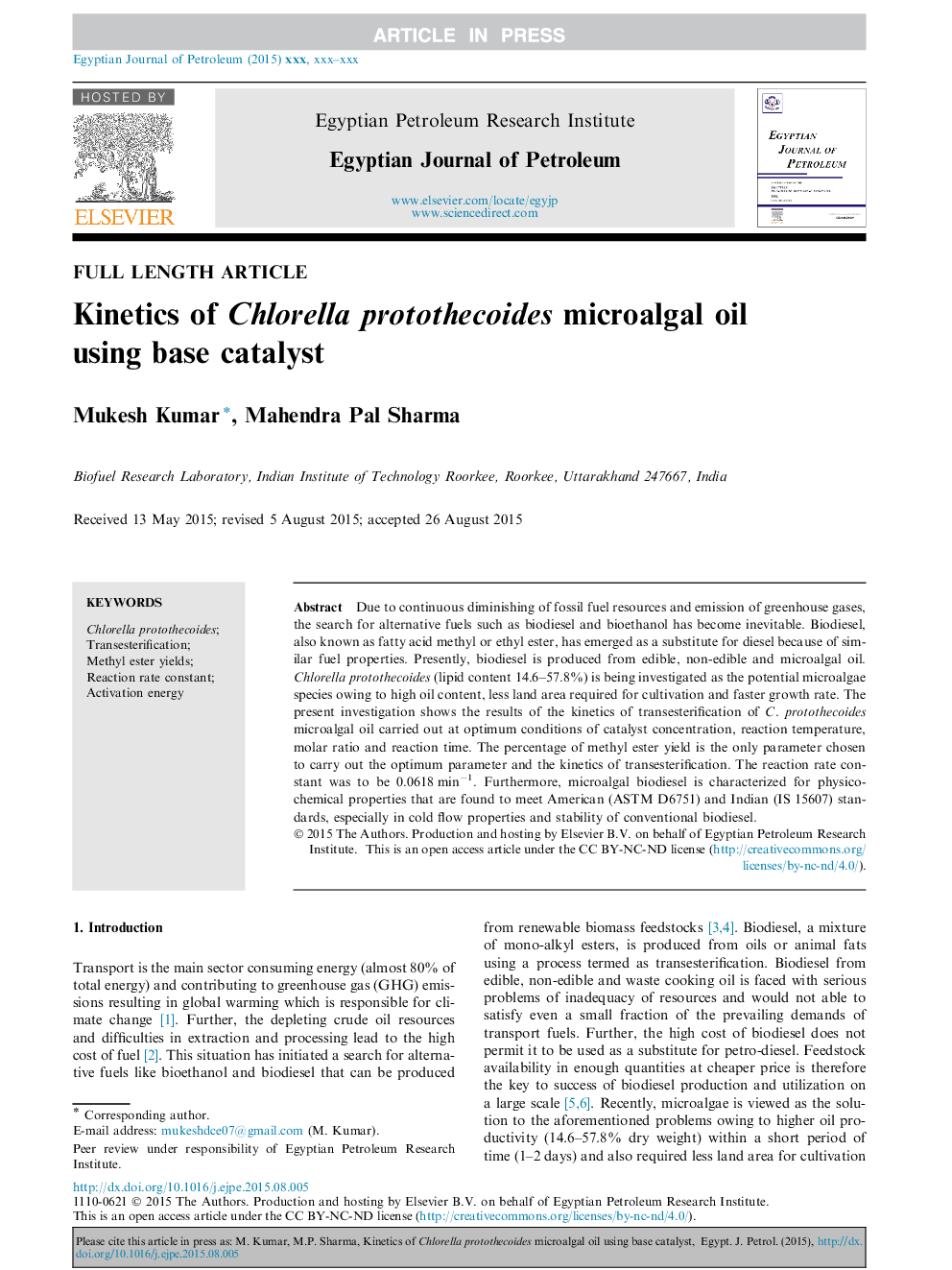| Article ID | Journal | Published Year | Pages | File Type |
|---|---|---|---|---|
| 5484659 | Egyptian Journal of Petroleum | 2016 | 8 Pages |
Abstract
Due to continuous diminishing of fossil fuel resources and emission of greenhouse gases, the search for alternative fuels such as biodiesel and bioethanol has become inevitable. Biodiesel, also known as fatty acid methyl or ethyl ester, has emerged as a substitute for diesel because of similar fuel properties. Presently, biodiesel is produced from edible, non-edible and microalgal oil. Chlorella protothecoides (lipid content 14.6-57.8%) is being investigated as the potential microalgae species owing to high oil content, less land area required for cultivation and faster growth rate. The present investigation shows the results of the kinetics of transesterification of C. protothecoides microalgal oil carried out at optimum conditions of catalyst concentration, reaction temperature, molar ratio and reaction time. The percentage of methyl ester yield is the only parameter chosen to carry out the optimum parameter and the kinetics of transesterification. The reaction rate constant was to be 0.0618Â minâ1. Furthermore, microalgal biodiesel is characterized for physico-chemical properties that are found to meet American (ASTM D6751) and Indian (IS 15607) standards, especially in cold flow properties and stability of conventional biodiesel.
Related Topics
Physical Sciences and Engineering
Energy
Energy (General)
Authors
Mukesh Kumar, Mahendra Pal Sharma,
